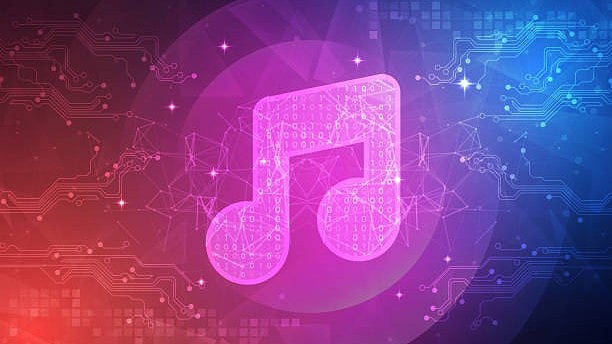
The author of the work enjoys protection over the creation and the future works created based on it. This norm has been challenged by AI.
Credit: iStock photo
Artificial intelligence has displaced the existing norms of copyright like no other technology. Copyright protection is based on the age-old economic principle of offering monopoly to the creators to incentivise. The author of the work enjoys protection over the creation and the future works created based on it. This norm has been challenged by AI.
AI facilitates ‘non-creators’ to don the creative hat and generate works at a click of a button. This has turned the creative process and creative industry on their heads. Music suffers extensively in the hands of voice cloning platforms. AI has the ability to even generate music in a particular style/voice — alarming from both a creative and a copyright standpoint.
Recently, iconic playback singer Asha Bhosle sued AI platforms and e-commerce platforms before the Bombay High Court to secure her personality rights. Her claim before the court was to restrict the defendants from cloning her voice. She’s secured the order in her favour. However, this is not the first time an Indian celebrity has been compelled to move the court to secure their personality rights from the clutches of the AI platforms. AI users are no longer passive consumers but are active consumers who interact with the platform to create work.
Mayk.It (the defendant in the case), through their platform ‘covers.ai’, facilitates generating songs in the voice of Asha Bhosle and other well-known personalities. The platform, through its terms of use, restricts users from commercially utilising it for the creation of songs, but it does not prohibit the platform from uploading the songs to commercial platforms. This has serious economic and moral implications.
The platform has been trained specifically on the works of Asha Bhosle without her consent. In India, there is a legal uncertainty about whether the training of an AI platform on copyrighted works amounts to infringement or if it is allowed under the education exception. In the present case, it is not limited to mere ‘training’; it also involves replication of the song in the singer’s voice. This is both a personality and moral rights violation.
Under the copyright law, each stakeholder of the song enjoys different protection: the lyricist enjoys authorship over the lyrics, the composer has authorship over the composition, and the music label enjoys protection over the recording. The ‘recording of the song’ is generally understood as the song.
The singer is not guaranteed any authorship protection over her creation like the lyricist and the composer, but she enjoys ‘performance rights’ over the song, wherein she has the right to prohibit anyone from recording the performance without consent; this makes the singer dependent on the music label/composer for their opportunity. After the 2012 amendment to the Copyright Act, the singer also enjoys the right to be compensated when their work is commercially used.
In this background, it becomes relevant to have a policy intervention for AI and copyright issues. Specifically, in the case of music copyright, it may not be possible for singers to approach the court to obtain relief every time. The response should also reflect the reality of the Indian entertainment industry. It should not be a mere legal transplant from a foreign country. The response should address the rights of all the stakeholders. For instance, in the US, the ‘ELVIS Act’ was recently passed to protect the rights of the artists against unauthorised reproduction by AI platforms, but the Act also enables the recording company to sue the infringers on behalf of the singers.
This solution might leave the singers without any meaningful protection. The singers/lyricists/composers in the future might face a situation of allowing the music label to authorise their respective works for AI training. Considering the poor bargaining power of the artists, they might be compelled to sign the contract, even if they do not intend to provide the consent for AI training. These contracts have already begun to surface in the print publishing industry.
The lawmakers should understand the needs of the creator and envision a robust mechanism to help the creators to secure their personality rights. Platforms like YouTube should also play an active role in helping the artists by removing the content that violates the personality rights of the creators; it could have a ‘jump cue option’ to remove the works that infringe on the personality rights of the celebrities on a priority basis.
(The writer is an assistant professor at KIIT School of Law)